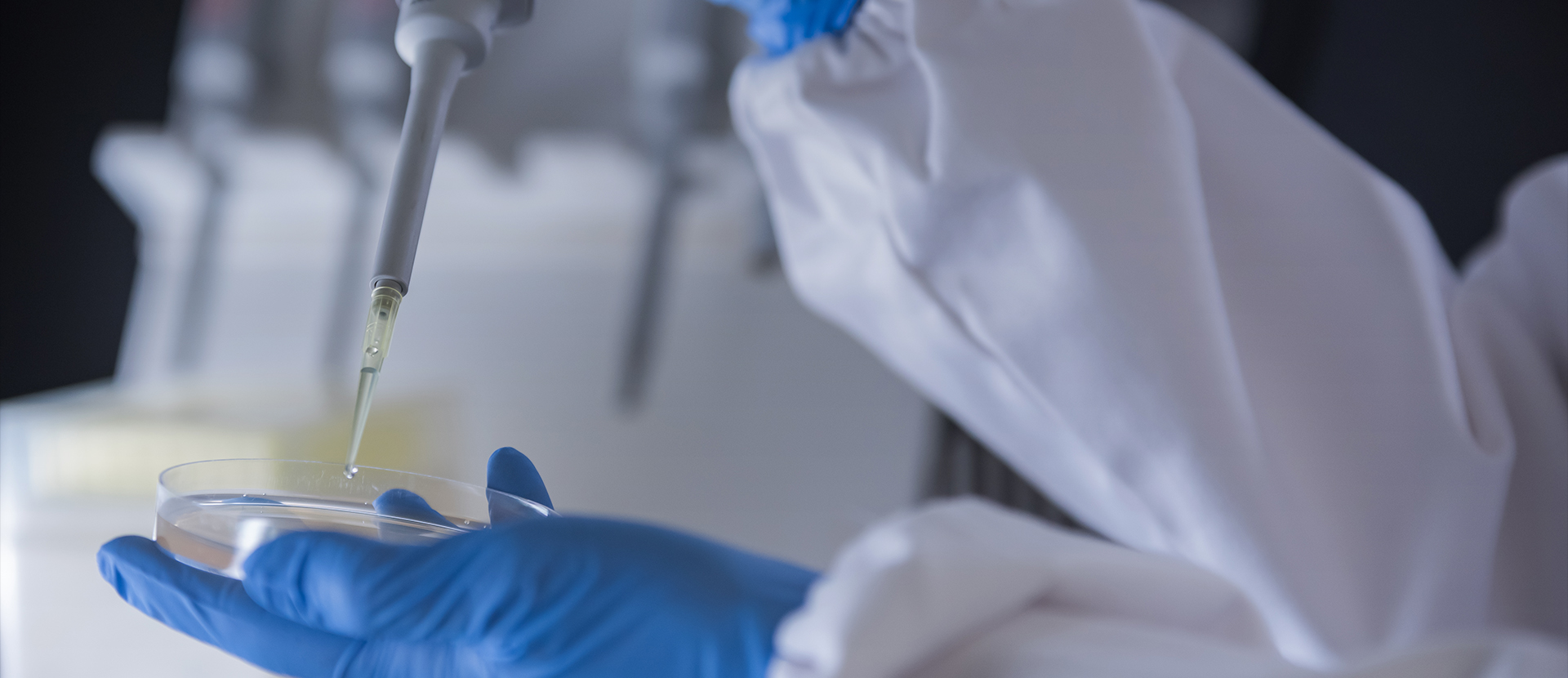

As a pioneering synthetic biology company, CABIO Biotech is at the forefront of a scientific revolution, leveraging synthetic biotech to design and engineer biological systems that address pressing global challenges. Through cutting-edge tools like CRISPR and advanced fermentation technologies, we are creating sustainable and innovative products, from next-generation biofuels and lab-grown proteins to biodegradable plastics. Discover how CABIO, as a leading synthetic biology company, is transforming industries and building a more sustainable future.
At the vanguard of scientific advancement, CABIO Biotech stands as a distinguished synthetic biology company, transforming groundbreaking research into scalable, market-ready products. We leverage cutting-edge synthetic biotech tools—including advanced gene editing with CRISPR, sophisticated computational modeling, and industrial-scale fermentation technology—to bridge the gap between discovery and real-world application. Our innovations are revolutionizing diverse sectors, from healthcare and agriculture to food production, delivering sustainable solutions such as next-generation biofuels, biodegradable plastics, precision-fermented proteins, and personalized medicines. This exploration delves into how CABIO, as a pioneering synthetic biology company, is not only shaping the future but also balancing scientific excellence with commercial viability to drive sustainable solutions for a better world.
Synthetic biology is the science of designing and engineering biological systems to solve real-world problems. Companies in this field bridge the gap between lab research and commercial products by:
For example, synthetic biology companies have developed microbial factories that produce insulin and plant-based meat proteins, transforming scientific breakthroughs into everyday solutions.
The journey from a lab startup to an industry leader involves several key steps:
1. Research and Development: Focus on groundbreaking discoveries, such as engineering microbes for specific functions.
2. Prototyping: Test and refine products in controlled environments to ensure efficacy and safety.
3. Partnerships: Collaborate with academic institutions, governments, and industries to scale innovations.
4. Regulatory Approval: Navigate compliance with agencies like the FDA and EPA to ensure product safety.
5. Market Expansion: Launch products globally while continuously improving through feedback and RD.
Companies like CABIO exemplify this evolution, starting with DNA sequencing innovations and growing into a leader in bioengineering solutions.
Synthetic biotech companies are revolutionizing nutrition by creating innovative, sustainable ingredients. Here’s how they do it:
1. Identify Nutritional Gaps: Analyze global dietary needs, such as protein shortages or vitamin deficiencies.
2. Engineer Microorganisms: Design microbes to produce nutrients like omega-3 fatty acids or plant-based proteins.
3. Scale Production: Use fermentation technology to produce ingredients at scale.
4. Ensure Safety and Compliance: Test products rigorously and adhere to regulatory standards.
5. Launch and Educate: Introduce products to the market and educate consumers on their benefits.
For instance, companies like CABIO use synthetic biology to create animal-free dairy proteins, offering sustainable and allergen-free alternatives.
Synthetic biology is transforming human nutrition by creating better, more sustainable ingredients. Key applications include:
For example, synthetic biology enables the production of heme, a key ingredient in plant-based meat that replicates the taste and texture of animal meat.
Synthetic biotech is addressing challenges in animal nutrition by creating sustainable and efficient feed solutions. Here’s how:
1. Identify Challenges: Focus on issues like feed efficiency, nutrient absorption, and environmental impact.
2. Engineer Microbes: Design microorganisms to produce high-quality proteins, vitamins, and enzymes for animal feed.
3. Optimize Production: Use fermentation to scale up production while minimizing resource use.
4. Ensure Safety: Conduct rigorous testing to ensure feed safety and compliance with regulations.
5. Deploy Solutions: Partner with farmers and feed manufacturers to implement these innovations.
For instance, synthetic biology is used to create feed additives that improve livestock health and reduce methane emissions, contributing to a more sustainable agriculture industry.
Modern synthetic biology companies leverage a comprehensive technology chain to transform gene editing into market-ready products. Here’s how the process works:
1. Gene Editing: Use tools like CRISPR to precisely modify DNA sequences.
2. Pathway Design: Design genetic pathways to produce desired compounds, such as enzymes or proteins.
3. Strain Development: Engineer microorganisms like bacteria or yeast to carry out the designed pathways.
4. Fermentation: Scale up production using bioreactors under controlled conditions.
5. Product Extraction: Harvest and purify the target compound for commercial use.
6. Quality Control: Ensure the product meets safety and efficacy standards through rigorous testing.
For example, companies like CABIO use this chain to produce sustainable alternatives to petroleum-based chemicals, showcasing the power of synthetic biology from lab to market.
As a leading synthetic biology company, CABIO Biotech differentiates itself through a robust, integrated technology platform that accelerates innovation from concept to commercialization. Our commitment to cutting-edge synthetic biotech solutions is underpinned by several key pillars:
Through these integrated capabilities, CABIO is not merely a synthetic biology company; we are a visionary synthetic biotech innovator, continuously pushing the boundaries of what's possible in sustainable biomanufacturing.
Balancing innovation and commercialization is critical for synthetic biology companies. Key strategies include:
Companies like CABIO exemplify this balance by combining cutting-edge research with scalable, market-driven solutions.
A world-class synthetic biology research platform requires several key elements:
1. Advanced Tools: Access to CRISPR, DNA synthesizers, and high-throughput screening technologies.
2. Talent Pool: A multidisciplinary team of biologists, engineers, and data scientists.
3. Infrastructure: State-of-the-art labs equipped with bioreactors and automation systems.
4. Data Integration: Use of AI and machine learning to analyze and optimize biological systems.
5. Collaborative Environment: Partnerships with academia, industry, and government to foster innovation.
For instance, companies like CABIO invest heavily in automation and AI to accelerate the design and testing of engineered organisms, setting a benchmark for research excellence.
Synthetic biotech is revolutionizing food safety and nutrition by:
For example, synthetic biology enables the production of allergen-free dairy proteins and nutrient-fortified crops, addressing both safety and nutritional challenges.
Collaboration is the backbone of innovation in synthetic biology. Here’s how partnerships drive progress:
In conclusion, synthetic biology companies are not just driving scientific advancement; they are spearheading a new era of sustainable solutions across industries. Through comprehensive processes encompassing gene editing, pathway design, fermentation, and stringent quality control, these companies transform cutting-edge research into market-ready innovations. Addressing global imperatives such as food security, healthcare, and environmental sustainability, they create revolutionary products like precision-fermented proteins, bio-based materials, and advanced nutritional ingredients.
As a recognized leader in the field, CABIO Biotech exemplifies how a forward-thinking synthetic biology company expertly balances scientific innovation with commercial success. By integrating advanced synthetic biotech platforms, fostering strategic collaborations, and adhering to the highest regulatory standards, CABIO is actively shaping a healthier, greener, and more sustainable future.
Discover the Future of Biotech with CABIO:
Explore how our innovative synthetic biology solutions can benefit your business. Partner with CABIO to harness the power of synthetic biotech for sustainable human nutrition, animal health, and industrial applications.



